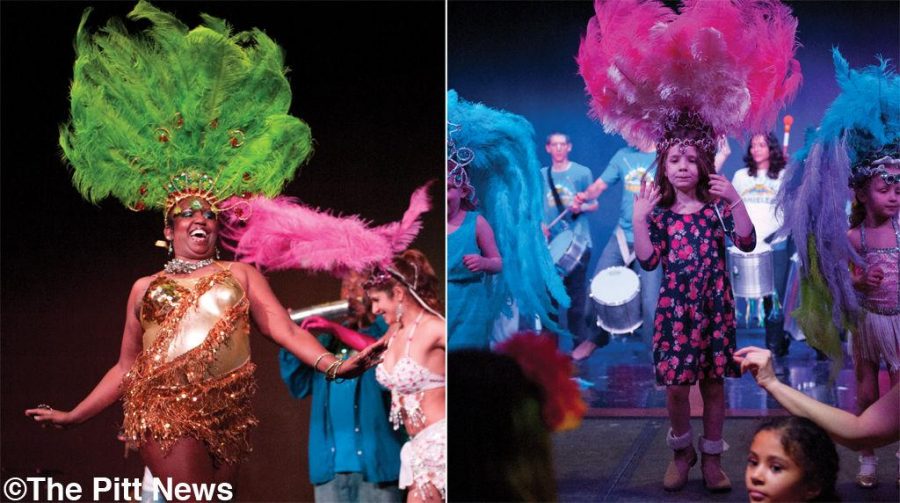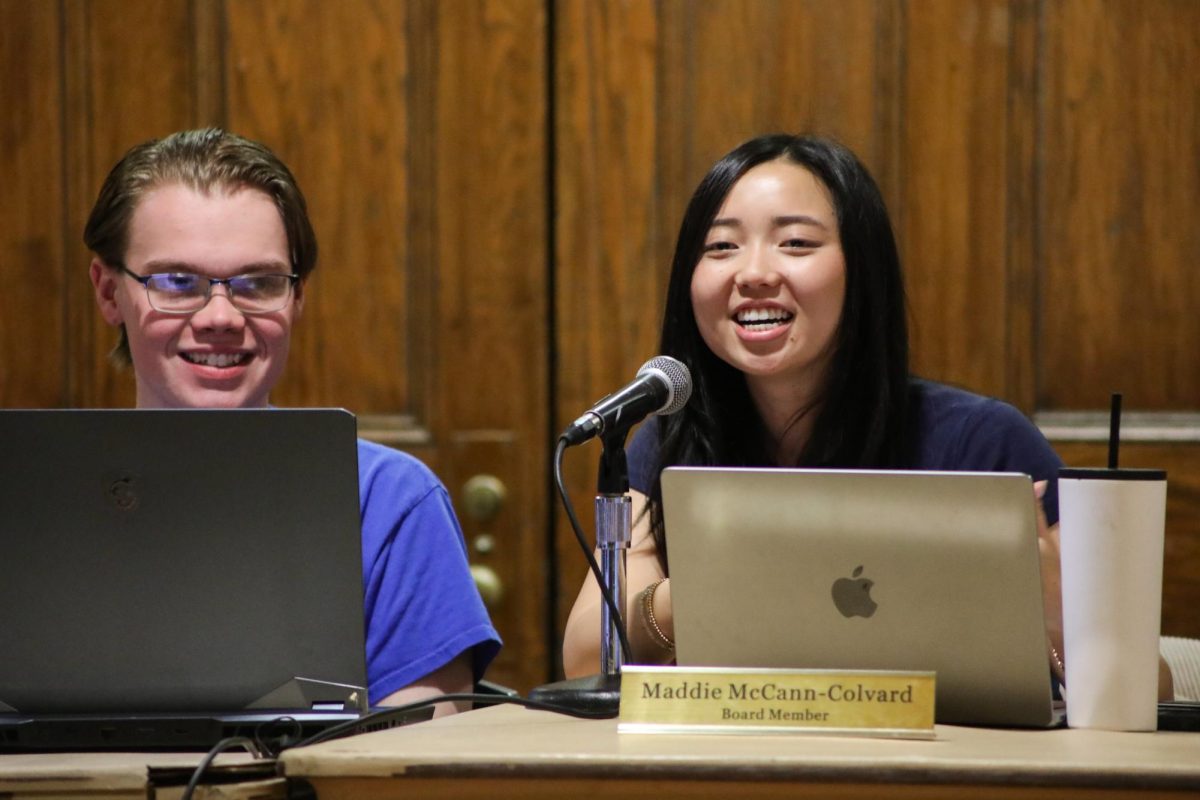Breakin’ it Down: Brazil Nuts hosts cultural festival
March 22, 2015
A crowd sporting Brazilian soccer jerseys, bearing a strong resemblance to last year’s World Cup in Rio de Janeiro, filled the William Pitt Union Assembly Room this weekend.
Brazil Nuts, a student group that promotes the Portuguese language and Brazilian culture, held its 14th annual Brazilian Festival Sunday afternoon. The club treated students and the Pittsburgh community to an afternoon of Brazilian song and dance and traditional Brazilian dishes. The event, which attracted roughly 350 people according to club president Kaitlyn Livingstone, ran from 1 p.m. to 5 p.m.
The organization collected donations at the event, which it will donate to Amizade, a Pittsburgh-based, nonprofit organization that does charity work around the world. The group was not able to provide an estimate of donation totals by time of publication.
Amizade has partnered with Santarém, a Brazilian city in the Amazon, to improve the quality and accessibility of health care in the region. Amizade trains and pairs doctors with the Abare, a hospital facility on a boat that treats people living along the Amazon River.
Many of the attendees were members of Pittsburgh’s Brazilian community, many of whom sported bright yellow Brazilian soccer jerseys.
“That’s one thing about Brazil. They love their fútbol,” said member Erik Bauer, a junior global management major who visited Brazil twice in the past year.
To kick off the event, Kenia, a popular Brazilian singer, sang the Brazilian national anthem, but she wasn’t the only one singing. Many of the event attendees sang along in their native Portuguese.
After the opening anthem, the first performance was a Samba dance routine of young girls, led by choreographer Luciana Brussi, a Brazilian-born dance teacher based in Pittsburgh. Samba is a traditional Brazilian dance form that features rhythmic, lively movements. The audience cheered as the dancers worked to match the upbeat tempo.
Kevin Rieth, Brazil Nuts’ business manager, later took the stage with the club’s Grupo De Música Popular Brasileira, playing a 10-string instrument called the charango.
“The charango is kind of a cross between a mandolin and a ukulele,” Rieth said. “It adds an interesting texture. It’s more of a Bolivian, Peruvian instrument.”
While the performers danced, the attendees sampled some authentic Brazilian foods.
Dishes included pão de queijos, which are cheese-flavored rolls; brigadeiros, which are chocolate truffles; and feijoada, which is a black bean stew with various meats, like pork and beef.
The Brazilian cuisine and the other attractions allowed students to “experience a little bit of Brazilian culture, without having to go to Brazil,” Bauer said.



